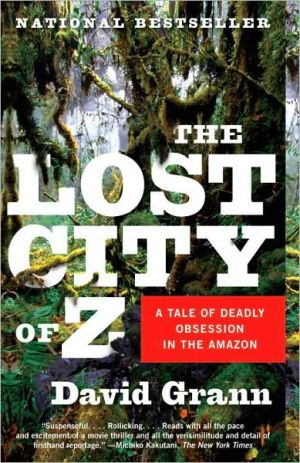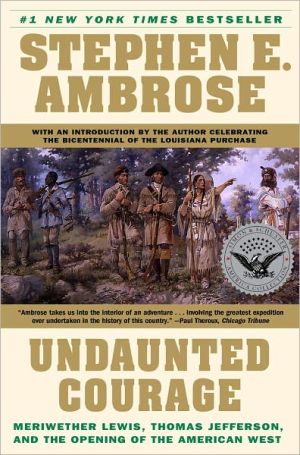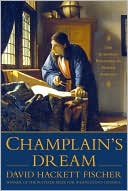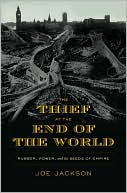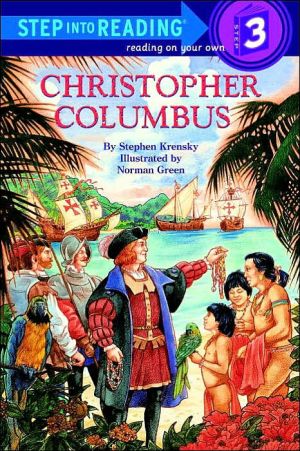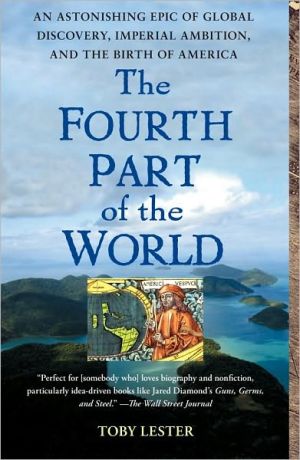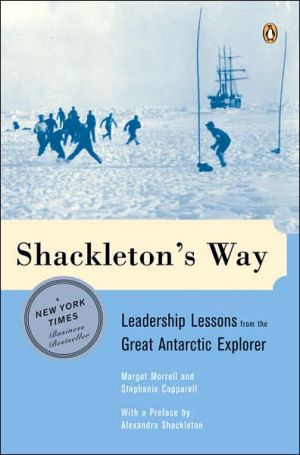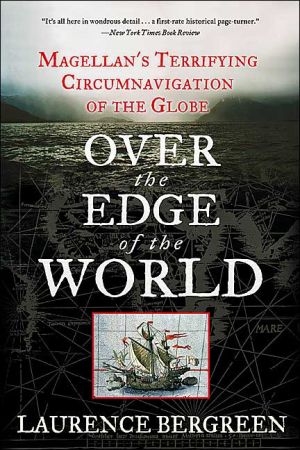The Lost City of Z: A Tale of Deadly Obsession in the Amazon
"In 1925, Fawcett ventured into the Amazon to find an ancient civilization, vowing to make one of the most important archaeological discoveries in history. For centuries Europeans believed the world's largest jungle concealed the glittering kingdom of El Dorado. Thousands died looking for it. Over time many scientists came to view the Amazon as a deathtrap that could never support a complex society. But Fawcett, whose daring expeditions helped inspire Conan Doyle's The Lost World, had spent...
Search in google:
A masterpiece of narrative nonfiction, this blockbuster adventure takes listeners on a gripping journey into the Amazon.After stumbling upon a hidden trove of diaries, acclaimed New Yorker writer David Grann set out to solve "the greatest exploration mystery of the twentieth century": what happened to the British explorer Percy Fawcett and his quest for the Lost City of Z? In 1925, Fawcett ventured into the Amazon to find an ancient civilization, hoping to make one of the most important discoveries in history, but he and his expedition vanished. For decades, scientists and adventurers have searched for evidence of Fawcett s party and the lost City of Z. David Grann s quest for the truth and his stunning discoveries about Fawcett s fate and Z form the heart of this complex, enthralling narrative.From the Compact Disc edition. The Barnes & Noble Review Percy Harrison Fawcett (he went by "Colonel," although he was only a lieutenant colonel) was among the last of the gentleman explorers, the generalists who set out with machete and sketchbook to fill in the blank spots on the globe. Born in 1867, Fawcett, a wiry teetotalling Englishman who seemed immune to malaria, did this work better and faster than anyone believed was possible: in 1906–7 he mapped the border between Peru, Bolivia, and Brazil, an inhospitable jungle river; in the seven years that followed he was all over the Amazon, sometimes following rivers, sometimes hacking his way overland, always with only a small party to help him. His surveying trips won him a medal from the Royal Geographical Society and a certain amount of fame (although never any money); but the expedition for which he is best known is the one he undertook in 1925, accompanied only by his son Jack and Raleigh Rimmell, Jack's boyhood friend. They were looking for a legendary city, which Fawcett referred to in his notes as "Z." None of them ever returned.
1\ WE SHALL RETURN On a cold January day in 1925, a tall, distinguished gentleman hurried across the docks in Hoboken, New Jersey, toward the S.S. Vauban, a five-hundred-and-eleven-foot ocean liner bound for Rio de Janeiro. He was fifty-seven years old, and stood over six feet, his long arms corded with muscles. \ Although his hair was thinning and his mustache was flecked with white, he was so fit that he could walk for days with little, if any, rest or nourishment. His nose was crooked like a boxer's, and there was something ferocious about his appearance, especially his eyes. They were set close together and peered out from under thick tufts of hair. No one, not even his family, seemed to agree on their color-some thought they were blue, others gray. Yet virtually everyone who encountered him was struck by their intensity: some called them "the eyes of a visionary." He had frequently been photographed in riding boots and wearing a Stetson, with a rifle slung over his shoulder, but even in a suit and a tie, and without his customary wild beard, he could be recognized by the crowds on the pier. He was Colonel Percy Harrison Fawcett, and his name was known throughout the world.\ He was the last of the great Victorian explorers who ventured into uncharted realms with little more than a machete, a compass, and an almost divine sense of purpose. For nearly two decades, stories of his adventures had captivated the public's imagination: how he had survived in the South American wilderness without contact with the outside world; how he was ambushed by hostile tribesmen, many of whom had never before seen a white man; how he battled piranha, electric eels, jaguars, crocodiles, vampire bats, and anacondas, including one that almost crushed him; and how he emerged with maps of regions from which no previous expedition had returned. He was renowned as the "David Livingstone of the Amazon," and was believed to have such unrivaled powers of endurance that a few colleagues even claimed he was immune to death. An American explorer described him as "a man of indomitable will, infinite resource, fearless"; another said that he could "outwalk and outhike and outexplore anybody else." The London Geographical Journal, the pre-eminent publication in its field, observed in 1953 that "Fawcett marked the end of an age. One might almost call him the last of the individualist explorers. The day of the aeroplane, the radio, the organized and heavily financed modern expedition had not arrived. With him, it was the heroic story of a man against the forest."\ In 1916, the Royal Geographical Society had awarded him, with the blessing of King George V, a gold medal "for his contributions to the mapping of South America." And every few years, when he emerged from the jungle, spidery thin and bedraggled, dozens of scientists and luminaries would pack into the Society's hall to hear him speak. Among them was Sir Arthur Conan Doyle, who was said to have drawn on Fawcett's experiences for his 1912 book The Lost World, in which explorers "disappear into the unknown" of South America and find, on a remote plateau, a land where dinosaurs have escaped extinction.\ As Fawcett made his way to the gangplank that day in January, he eerily resembled one of the book's protagonists, Lord John Roxton:\ Something there was of Napoleon III, something of Don Quixote, and yet again something which was the essence of the English country gentleman._._._._He has a gentle voice and a quiet manner, but behind his twinkling blue eyes there lurks a capacity for furious wrath and implacable resolution, the more dangerous because they are held in leash.\ None of Fawcett's previous expeditions compared with what he was about to do, and he could barely conceal his impatience, as he fell into line with the other passengers boarding the S.S. Vauban. The ship, advertised as "the finest in the world," was part of the Lamport & Holt elite "V" class. The Germans had sunk several of the company's ocean liners during the First World War, but this one had survived, with its black, salt-streaked hull and elegant white decks and striped funnel billowing smoke into the sky. Model T Fords shepherded passengers to the dock, where longshoremen helped cart luggage into the ship's hold. Many of the male passengers wore silk ties and bowler hats; women had on fur coats and feathered caps, as if they were attending a society event, which, in some ways, they were-the passenger lists of luxury ocean liners were chronicled in gossip columns and scoured by young girls searching for eligible bachelors.\ Fawcett pushed forward with his gear. His trunks were loaded with guns, canned food, powdered milk, flares, and handcrafted machetes. He also carried a kit of surveying instruments: a sextant and a chronometer for determining latitude and longitude, an aneroid for measuring atmospheric pressure, and a glycerin compass that could fit in his pocket. Fawcett had chosen each item based on years of experience; even the clothes he had packed were made of lightweight, tear-proof gabardine. He had seen men die from the most innocuous seeming oversight-a torn net, a boot that was too tight.\ Fawcett was setting out into the Amazon, a wilderness nearly the size of the continental United States, to make what he called "the great discovery of the century"-a lost civilization. By then, most of the world had been explored, its veil of enchantment lifted, but the Amazon remained as mysterious as the dark side of the moon. As Sir John Scott Keltie, the former secretary of the Royal Geographical Society and one of the world's most acclaimed geographers at the time, noted, "What is there no one knows."\ Ever since Francisco de Orellana and his army of Spanish conquistadores descended the Amazon River, in 1542, perhaps no place on the planet had so ignited the imagination-or lured men to their death. Gaspar de Carvajal, a Dominican friar who accompanied Orellana, described woman warriors in the jungle who resembled the mythical Greek Amazons. Half a century later, Sir Walter Raleigh spoke of Indians with "their eyes in their shoulders, and their mouths in the middle of their breasts"-a legend that Shakespeare wove into Othello:\ Of the Cannibals that each other eat,\ The Anthropophagi and men whose heads Do grow beneath their shoulders.\ What was true about the region-serpents as long as trees, rodents the size of pigs-was sufficiently beyond belief that no embellishment seemed too fanciful. And the most entrancing vision of all was of El Dorado. Raleigh claimed that the kingdom, which the conquistadores had heard about from Indians, was so plentiful in gold that its inhabitants ground the metal into powder and blew it "thorow hollow canes upon their naked bodies untill they be al shining from the foote to the head."\ Yet each expedition that had tried to find El Dorado ended in disaster. Carvajal, whose party had been searching for the kingdom, wrote in his diary, "We reached a [state of] privation so great that we were eating nothing but leather, belts and soles of shoes, cooked with certain herbs, with the result that so great was our weakness that we could not remain standing." Some four thousand men died during that expedition alone, of starvation and disease, and at the hands of Indians defending their territory with arrows dipped in poison. Other El Dorado parties resorted to cannibalism. Many explorers went mad. In 1561, Lope de Aguirre led his men on a murderous rampage, screaming, "Does God think that, because it is raining, I am not going to_._._._destroy the world?" Aguirre even stabbed his own child, whispering, "Commend thyself to God, my daughter, for I am about to kill thee." Before the Spanish crown sent forces to stop him, Aguirre warned in a letter, "I swear to you, King, on my word as a Christian, that if a hundred thousand men came, none would escape. For the reports are false: there is nothing on that river but despair." Aguirre's companions finally rose up and killed him; his body was quartered, and Spanish authorities displayed the head of the "Wrath of God" in a steel cage. Still, for three centuries, expeditions continued to search, until, after a toll of death and suffering worthy of Joseph Conrad, most archeologists had concluded that El Dorado was no more than a delusion.\ Fawcett, however, was certain that the Amazon contained a fabulous kingdom, and he was not another soldier of fortune or a crackpot. A man of science, he had spent years gathering evidence to prove his case-digging up artifacts, studying petroglyphs, and interviewing tribes. And after fierce battles with skeptics Fawcett had received funding from the most respected scientific institutions, including the Royal Geographical Society, the American Geographical Society, and the Museum of the American Indian. Newspapers were proclaiming that Fawcett would soon startle the world. The Atlanta Constitution declared, "It is perhaps the most hazardous and certainly the most spectacular adventure of the kind ever undertaken by a reputable scientist with the backing of conservative scientific bodies."\ Fawcett had concluded that an ancient, highly cultured people still existed in the Brazilian Amazon and that their civilization was so old and sophisticated it would forever alter the Western view of the Americas. He had christened this lost world the City of Z. "The central place I call 'Z'-our main objective-is in a valley_._._._about ten miles wide, and the city is on an eminence in the middle of it, approached by a barreled roadway of stone," Fawcett had stated earlier. "The houses are low and windowless, and there is a pyramidal temple."\ Reporters on the dock in Hoboken, across the Hudson River from Manhattan, shouted questions, hoping to learn the location of Z. In the wake of the technological horrors of the Great War, and amid the spread of urbanization and industrialization, few events so captivated the world. One newspaper exulted, "Not since the days when Ponce de Le—n crossed the unknown Florida in search of the Waters of Perpetual Youth_._._._has a more alluring adventure been planned."\ Fawcett welcomed "the fuss," as he described it in a letter to a friend, but he was careful about how he responded. He knew that his main rival, Alexander Hamilton Rice, a multimillionaire American doctor who commanded vast resources, was already entering the jungle with an unprecedented array of equipment. The prospect of Dr. Rice finding Z terrified Fawcett. Several years earlier, Fawcett had watched as a colleague from the Royal Geographical Society, Robert Falcon Scott, had set out to become the first explorer to reach the South Pole, only to discover, shortly before he froze to death, that his Norwegian rival, Roald Amundsen, had beaten him by thirty-three days. In a recent letter to the Royal Geographical Society, Fawcett wrote, "I cannot say all I know, or even be precise as to locality, for these things leak out, and there can be nothing so bitter to the pioneer as to find the crown of his work anticipated."\ He was also afraid that if he released details of his route, and others attempted to find Z or rescue him, it would result in countless deaths. An expedition of fourteen hundred armed men had previously vanished in the same region. A news bulletin telegraphed around the globe declared, "Fawcett Expedition_._._._to Penetrate Land Whence None Returned." And Fawcett, who was resolved to reach the most inaccessible areas, did not intend, like other explorers, to go by boat; rather, he planned to hack straight through the jungle on foot. The Royal Geographical Society had warned that Fawcett "is about the only living geographer who could successfully attempt" such an expedition and that "it would be hopeless for any people to follow in his footsteps." Before he left England, Fawcett confided to his younger son, Brian, "If with all my experience we can't make it, there's not much hope for others."\ As reporters clamored around him, Fawcett explained that only a small expedition would have any chance of survival. It would be able to live off the land, and not pose a threat to hostile Indians. The expedition, he had stated, "will be no pampered exploration party, with an army of bearers, guides and cargo animals. Such top-heavy expeditions get nowhere; they linger on the fringe of civilization and bask in publicity. Where the real wilds start, bearers are not to be had anyway, for fear of the savages. Animals cannot be taken because of lack of pasture and the attack of insects and bats. There are no guides, for no one knows the country. It is a matter of cutting equipment to the absolute minimum, carrying it all oneself, and trusting that one will be able to exist by making friends with the various tribes one meets." He now added, "We will have to suffer every form of exposure._._._._We will have to achieve a nervous and mental resistance, as well as physical, as men under these conditions are often broken by their minds succumbing before their bodies."\ Fawcett had chosen only two people to go with him: his twenty-one-year-old son, Jack, and Jack's best friend, Raleigh Rimell. Although they had never been on an expedition, Fawcett believed that they were ideal for the mission: tough, loyal, and, because they were so close, unlikely, after months of isolation and suffering, "to harass and persecute each other"-or, as was common on such expeditions, to mutiny. Jack was, as his brother Brian put it, "the reflection of his father": tall, frighteningly fit, and ascetic. Neither he nor his father smoked cigarettes or drank. Brian noted that Jack's "six feet three inches were sheer bone and muscle, and the three chief agents of bodily degeneration-alcohol, tobacco and loose living-were revolting to him." Colonel Fawcett, who followed a strict Victorian code, put it slightly differently: "He is_._._._absolutely virgin in mind and body."\ Jack, who had wanted to accompany his father on an expedition since he was a boy, had spent years preparing-lifting weights, maintaining a rigid diet, studying Portuguese, and learning how to navigate by the stars. Still, he had suffered little real deprivation, and his face, with its luminescent skin, crisp mustache, and slick brown hair, betrayed none of the hardness of his father's. With his stylish clothes, he looked more like a movie star, which is what he hoped to become upon his triumphant return.\ Raleigh, though smaller than Jack, was still nearly six feet tall and muscular. (A "fine physique," Fawcett told the R.G.S.) His father had been a surgeon in the Royal Navy and had died of cancer in 1917, when Raleigh was fifteen. Dark-haired, with a pronounced widow's peak and a riverboat gambler's mustache, Raleigh had a jocular, mischievous nature. "He was a born clown," said Brian Fawcett, the "perfect counterpart of the serious Jack." The two boys had been virtually inseparable since they roamed the Devonshire countryside around Seaton, England, where they grew up, riding bicycles and shooting rifles in the air. In a letter to one of Fawcett's confidants, Jack wrote, "Now we have Raleigh Rimell on board who is every bit as keen as I am._._._._He is the only intimate friend I have ever had. I knew him before I was seven years old and we have been more or less together ever since. He is absolutely honest and decent in every sense of the word and we know each other inside out."\ From the Hardcover edition.
Preface 31 We Shall Return 72 The Vanishing 173 The Search Begins 274 Buried Treasure 335 Blank Spots on the Map 486 The Disciple 587 Freeze-Dried Ice Cream, and Adrenaline Socks 668 Into the Amazon 719 The Secret Papers 8910 The Green Hell 9411 Dead Horse Camp 10012 In the Hands of the Gods 10213 Ransom 12514 The Case for Z 12915 El Dorado 14816 The Locked Box 15617 The Whole World Is Mad 16018 A Scientific Obsession 18319 An Unexpected Clue 19320 Have No Fear 19721 The Last Eyewitness 21522 Dead or Alive 22523 The Colonel's Bones 24424 The Other World 25625 Z 261Acknowledgments 279A Note on the Sources 283Notes 285Selected Bibliography 315Index 327
\ Marie AranaThe Lost City of Z…recounts Fawcett's expeditions with all the pace of a white-knuckle adventure story. The book is a model of suspense and concision…Although Fawcett's story cuts through 100 years of complicated history, Grann follows its twists and turns admirably. Thoroughly researched, vividly told, this is a thrill ride from start to finish.\ —The Washington Post\ \ \ \ \ Rich Cohen…outstanding…The book is screwball…a hybrid in which the weak, fear-wracked reporter from the present age confronts the crazed iron men of yore, citizens of a country as grand and gone as the kingdom of the Incas. The result is a powerful narrative, stiff lipped and Victorian at the center, trippy at the edges, as if one of those stern men of Conrad had found himself trapped in a novel by Garcia Marquez.\ —The New York Times Book Review\ \ \ Michiko Kakutani…at once a biography, a detective story and a wonderfully vivid piece of travel writing that combines Bruce Chatwinesque powers of observation with a Waugh-like sense of the absurd…it reads with all the pace and excitement of a movie thriller and all the verisimilitude and detail of firsthand reportage, and it seems almost surely destined for a secure perch on the best-seller lists.\ —The New York Times\ \ \ \ \ Publishers WeeklyIn 1925, renowned British explorer Col. Percy Harrison Fawcett embarked on a much publicized search to find the city of Z, site of an ancient Amazonian civilization that may or may not have existed. Fawcett, along with his grown son Jack, never returned, but that didn't stop countless others, including actors, college professors and well-funded explorers from venturing into the jungle to find Fawcett or the city. Among the wannabe explorers is Grann, a staff writer for the New Yorker, who has bad eyes and a worse sense of direction. He became interested in Fawcett while researching another story, eventually venturing into the Amazon to satisfy his all-consuming curiosity about the explorer and his fatal mission. Largely about Fawcett, the book examines the stranglehold of passion as Grann's vigorous research mirrors Fawcett's obsession with uncovering the mysteries of the jungle. By interweaving the great story of Fawcett with his own investigative escapades in South America and Britain, Grann provides an in-depth, captivating character study that has the relentless energy of a classic adventure tale. (Feb.)\ Copyright © Reed Business Information, a division of Reed Elsevier Inc. All rights reserved.\ \ \ \ \ Library JournalGrann, a staff writer at The New Yorker, gives a gripping, detailed account of the fate of English explorer Percy Fawcett. Fawcett disappeared into the jungles of Brazil in 1925 with his son and his son's best friend. It was not the first time that Fawcett had plunged into Amazonia or confronted pestilence and natives not keen on receiving trespassers. Colonel Fawcett was a soldier, sometime spy, and expert surveyor and explorer who helped define the border between Bolivia and Brazil. But he was primarily obsessed with finding a rumored great city in the jungles of South America, which he simply called Z partly because it did not have a name and partly to throw off others who were looking for it. Grann's experience following this mystery to England and Brazil was an adventure in its own right. He alternates chapters on Fawcett's adventures, based on his diaries and contemporary accounts, with his own and others' efforts to find Fawcett or at least the truth about his demise. Like the books of Simon Winchester (e.g., The Man Who Loved China), this is a compelling and entertaining read. Recommended for all public and academic libraries.\ \ —Lee Arnold\ \ \ \ \ Kirkus ReviewsA stirring tale of lost civilizations, avarice, madness and everything else that makes exploration so much fun. As New Yorker staff writer and debut author Grann notes, the British explorer Percy Fawcett's exploits in jungles and atop mountains inspired novels such as Arthur Conan Doyle's The Lost World, and his character is the tutelary spirit of the Indiana Jones franchise. Fawcett in turn was nurtured by his associations with fabulists such as Doyle and H. Rider Haggard, whose talisman he bore into the Amazonian rainforest. Working from a buried treasure in the form of long-lost diaries, Grann reconstructs the 1925 voyage Fawcett undertook with his 21-year-old son to find the supposed Lost City of Z, which, by all accounts, may have been El Dorado, the fabled place of untold amounts of Inca gold. Many a conquistador had died looking for the place, though in their wake, "after a toll of death and suffering worthy of Joseph Conrad, most archaeologists had concluded that El Dorado was no more than a delusion." Fawcett was not among them, nor was his rival, a rich American doctor named Alexander Hamilton Rice, who was hot on the trail. Fawcett determined that a small expedition would be more likely to survive than a large one. Perhaps so, but the expedition notes record a hell of humid swamps and "flesh and carrion-eating bees [and] gnats in clouds . . . rendering one's food unpalatable by filling it with their filthy bodies, their bellies red and disgustingly distended with one's own blood." It would get worse, we imagine, before Fawcett and his party disappeared, never to be seen again. Though, as Grann writes, they were ironically close to the object of their quest. A colorful tale oftrue adventure, marked by satisfyingly unexpected twists, turns and plenty of dark portents. First printing of 125,000\ \ \ \ \ The Barnes & Noble ReviewPercy Harrison Fawcett (he went by "Colonel," although he was only a lieutenant colonel) was among the last of the gentleman explorers, the generalists who set out with machete and sketchbook to fill in the blank spots on the globe. Born in 1867, Fawcett, a wiry teetotalling Englishman who seemed immune to malaria, did this work better and faster than anyone believed was possible: in 1906–7 he mapped the border between Peru, Bolivia, and Brazil, an inhospitable jungle river; in the seven years that followed he was all over the Amazon, sometimes following rivers, sometimes hacking his way overland, always with only a small party to help him. His surveying trips won him a medal from the Royal Geographical Society and a certain amount of fame (although never any money); but the expedition for which he is best known is the one he undertook in 1925, accompanied only by his son Jack and Raleigh Rimmell, Jack's boyhood friend. They were looking for a legendary city, which Fawcett referred to in his notes as "Z." None of them ever returned.\ The 1925 expedition has been the subject of much speculation: in addition to the reasonable hypotheses (that Fawcett, Jack, and Rimmell died of natural causes in the jungle or were killed by unfriendly Indians) students of the mystery have imagined that Fawcett was being held captive, or that he had found his city and decided to stay there, or even that he vanished via a mystical portal into the hollow earth. He shows up now and then in the popular imagination: in a volume of Tintin, in an Indiana Jones novel. In 2005 a British theater director claimed, on the evidence of Fawcett's private letters, that the explorer never intended to return from the jungle; instead he planned to start a secret community organized around the worship of his son, along with other "unusual beliefs."\ David Grann re-covers this ground in The Lost City of Z. Grann, a staff writer for The New Yorker, is both more thorough and more reliable than most of Fawcett's chroniclers; he follows the explorer from his childhood in England through his military service in Ceylon, his years as a spy in the Middle East, an Amazon explorer, a soldier, and, finally, the victim of his own need to find the aptly named Z, the last letter in the alphabet of his travels.\ It's a phenomenal story, and Grann doesn't stint on details. We learn (can this be true?) that Fawcett's mother sent him to the punishing Royal Military Academy at Woolwich because she "liked the splendid uniforms"; that Fawcett's brother Edward helped Helena Blavatsky, through whose ample body every story of 19th-century mysticism must apparently pass, to research her three-volume opus The Secret Doctrine; and that Edward became a writer of popular adventure novels, "the English answer to Jules Verne," whose fictions feature fantastical lost cities not unlike the one Percy would die looking for.\ The real explorers who populate The Lost City of Z are no less colorful than the imaginary ones. Fawcett's chief rival in the race to map the South American interior was an American doctor named Alexander Hamilton Rice, whose disposition, means, and methods were the opposite of Fawcett's own. Rice equipped large groups at great personal expense and liked gadgetry: he was the first explorer to bring a radio into the jungle (it weighed 40 pounds, cost the equivalent of $67,000, and couldn't transmit, but it did allow him to keep up with the news), and even built a 40-foot amphibious vessel that might have come straight from one of Edward Fawcett's adventure novels. Rice represented the future of exploration, and Percy Fawcett must at some level have known it; one of the more melancholy currents that runs through The Lost City of Z is Fawcett's growing interest in the occult -- he was a contributor to The Occult Review and wrote an article on "Obsession" for Light magazine -- as though he'd realized that in the material world he was already overmatched.\ However strange Fawcett became, however, the people who went looking for him were stranger. The greater tragedy of the Fawcett expedition isn't the fact of Percy Fawcett's own disappearance, or his son's, or even the disappearance of poor Raleigh Rimmell, who'd fallen in love with a duke's daughter on the way to Brazil and had second thoughts about the whole lost-city thing. It's the surprisingly large number of people who died trying to find him, or Z, or both -- all told, perhaps 100. Among them was a Swiss named Rattin, who claimed to have seen Fawcett alive in the jungle, and a Hollywood actor named Albert de Winton, who spent nine months in the jungle, emerged, went back, and didn't emerge again. Eventually it got so bad that the Brazilian government required explorers looking for Fawcett to obtain special permission.\ Not everyone who looked for him died. In 1928, an explorer named George Miller Dyott took a party into the Amazon and claimed to have proof that Fawcett had been killed by Indians (his story didn't hold up, but he wrote a book and got a movie deal anyway). One expedition turned up Fawcett's bones (they weren't) and another found Fawcett's grandson Dulipé, the "White God of the Xingu" (he wasn't). In 1996, a Brazilian banker and his son went looking and were kidnapped; fortunately they could pay. Then there was David Grann.\ Grann's story of his own trip to the interior, sections of which are interspersed through the book, is impressive: even in the days of the Land Rover and the satellite phone, poking around in the jungle is risky, uncomfortable work. And yet I can't help wishing that Grann had made less of himself. Maybe it's because his adventures, for all their hairy moments, pale in comparison to Fawcett's really horrific slogs through the wilderness, which Grann had to compress in order to keep his book to a manageable size. Or maybe it's because the story of the journalist -- especially the one who, as Grann says of himself, likes "take-out food, sports highlights, and the air-conditioning on high" -- who is compelled not only to write about but to relive his subject matter has become a nonfiction writer's cliché. As far as I can tell, Grann's own travels turned up no information about Fawcett or Z that hadn't been published elsewhere. It's the one part of the book that functions less as an exploration than as a kind of creaky simulacrum, an adventure ride that takes us to a city that's been found over and over. --Paul La Farge\ Paul La Farge is the author of two novels: The Artist of the Missing and Haussmann, or the Distinction.\ \ \
